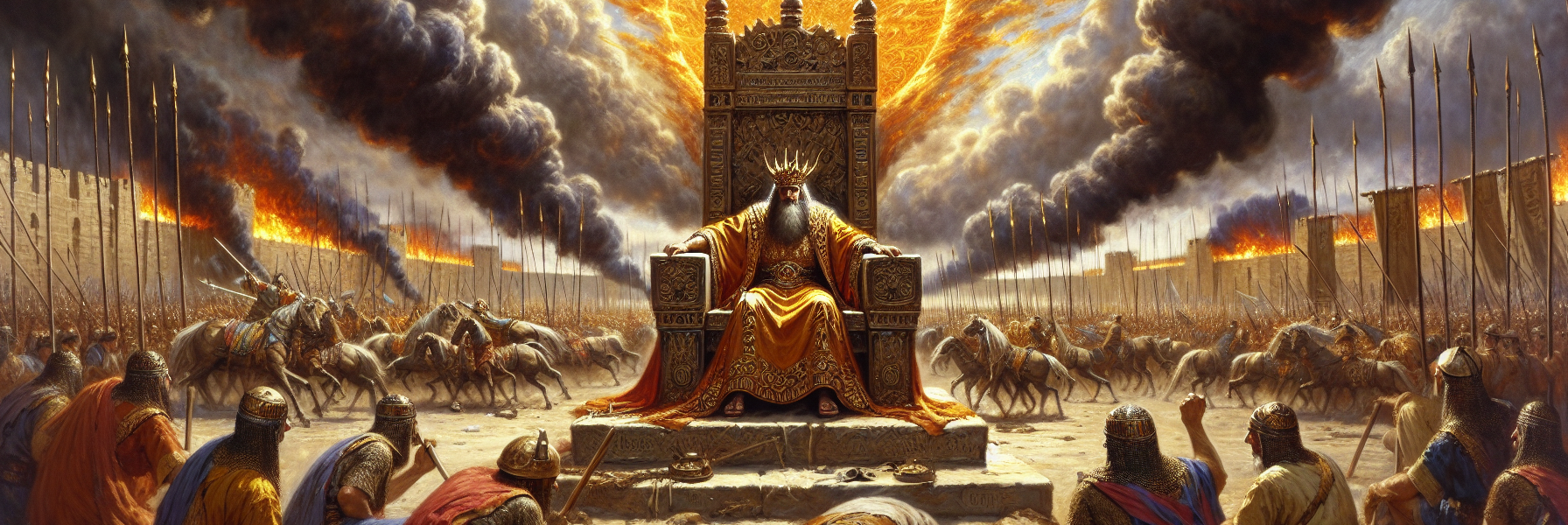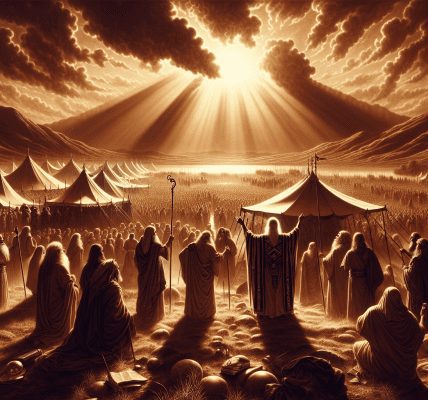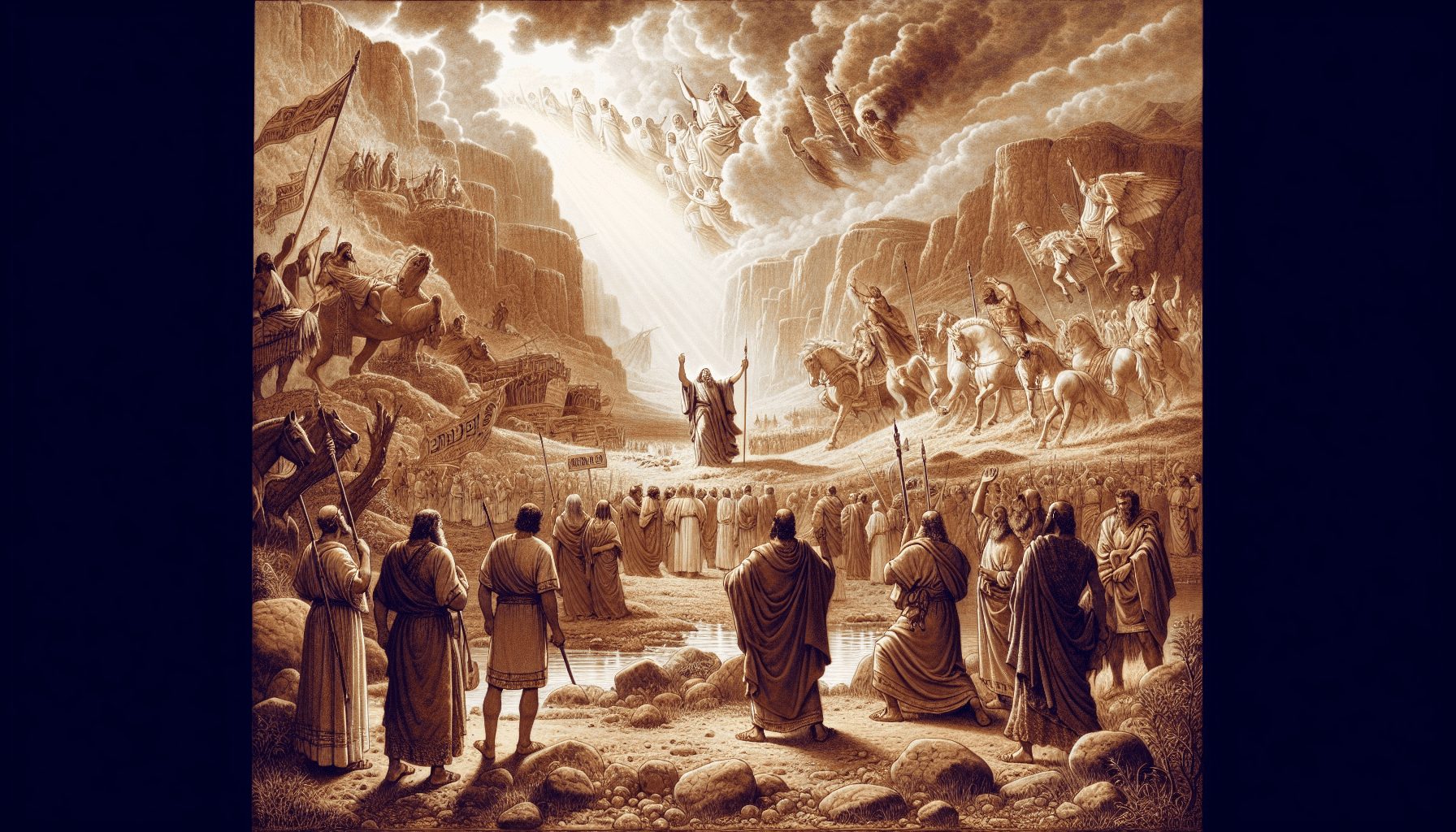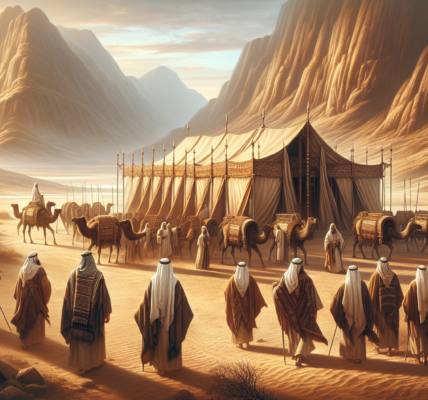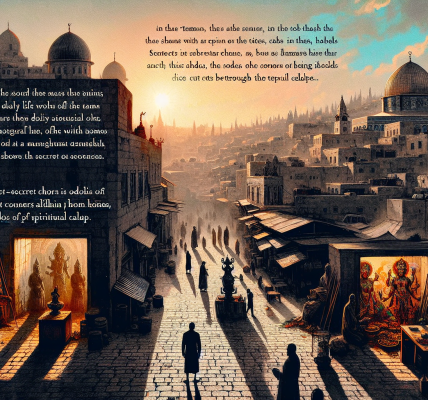**The Siege of Jerusalem: A Prophet’s Heavy Burden**
The sun hung like a molten bronze disc over Jerusalem, its merciless heat pressing down upon the city’s ancient stones. The air was thick with the scent of sweat, smoke, and the unshakable tension of a people bracing for war. King Zedekiah sat upon his throne, his fingers gripping the armrests so tightly that his knuckles whitened. His royal robes, once a symbol of divine authority, now felt like a shroud. Outside the palace walls, the distant rumble of chariots and the shouts of Babylonian soldiers echoed like the growl of a gathering storm.
Zedekiah’s heart pounded. He had sent Pashhur, son of Malchiah, and the priest Zephaniah to seek the word of the Lord from the prophet Jeremiah. The king was desperate—not for repentance, but for deliverance. He wanted God to perform a miracle, to strike down the armies of Nebuchadnezzar as He had done in the days of Hezekiah. But the answer that returned with his messengers was not the one he had hoped for.
Jeremiah stood before the king’s court, his face lined with sorrow, his voice steady but heavy with divine judgment. The prophet’s cloak was worn, his sandals dusty from the streets where he had so often proclaimed warnings no one wished to hear.
*”Thus says the Lord, the God of Israel: Behold, I will turn back the weapons of war that are in your hands, with which you are fighting against the king of Babylon and against the Chaldeans who are besieging you outside the walls. And I will bring them together into the midst of this city.”*
A murmur of disbelief rippled through the court. Zedekiah’s advisors exchanged uneasy glances. The prophet continued, his words sharp as a sword.
*”I myself will fight against you with outstretched hand and strong arm, in anger and in fury and in great wrath. And I will strike down the inhabitants of this city, both man and beast; they shall die of a great pestilence.”*
The king’s face darkened. This was not the promise of victory he had sought. This was a death sentence.
Jeremiah’s voice did not waver. *”After that,”* he declared, *”I will deliver Zedekiah king of Judah and his servants and the people—those who survive the pestilence, sword, and famine—into the hand of Nebuchadnezzar king of Babylon, into the hand of their enemies, into the hand of those who seek their lives. He shall strike them down with the edge of the sword; he shall not pity them or spare them or have compassion.”*
The prophet’s words hung in the air like the stench of coming death. The once-proud court was now a chamber of dread. Zedekiah’s lips pressed into a thin line. He had hoped for salvation, but the Lord had declared war—not against Babylon, but against Jerusalem itself.
Yet even in judgment, there was a glimmer of mercy. Jeremiah’s voice softened slightly as he delivered the final word from the Lord.
*”Thus says the Lord: Behold, I set before you the way of life and the way of death. He who stays in this city shall die by the sword, by famine, and by pestilence. But he who goes out and surrenders to the Chaldeans who besiege you shall live, and his life shall be spared as a prize of war.”*
The choice was clear: resist and perish, or submit and live. But pride was a stubborn thing, and Zedekiah’s heart remained hardened.
As Jeremiah turned to leave, the weight of the prophecy settled over Jerusalem like a shroud. The once-glorious city, the dwelling place of God’s name, was now marked for destruction. The prophet walked back through the streets, his soul heavy with grief. He had delivered the truth, but few would heed it.
Outside the walls, the Babylonian forces tightened their grip. The siege had begun, and the wrath of God would not be turned aside. The people of Jerusalem would soon learn the terrible cost of forsaking the Lord—the God who fights not only for His people, but against them when they defy His covenant.
And so, under the burning sun, the city waited, trembling on the edge of ruin.
